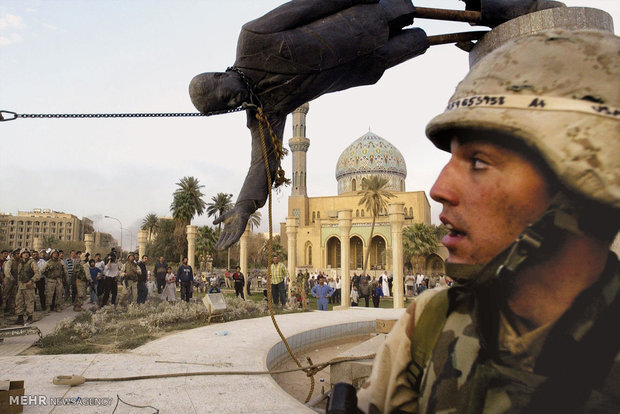How much has the 16-year Iraq War cost the U.S.?

The U.S. has spent about $120 billion a year on the Iraq War, a sum which is only $55 billion less than the EU annual budget.
The war in Iraq from the outset was very controversial in the U.S. and other Western countries. Opponents to the Iraq War were not just among human rights groups or opponents to liberal democracy. Some of them were ordinary American citizens and voters whose opposition was purely due to economic reasons rather than moral or ideological ones.
The opposition considered the cost of the war in Iraq as a heavy burden on American taxpayers, so they wanted to prevent the invasion of Iraq in 2003, and have called for a halt to the war in Iraq since its beginning.
The latest estimation of the Iraq war: $1922 billion
In the wake of economic opposition to the Iraq War, various U.S. groups and institutions have so far rallied to assess the costs of the war.
“The Costs of War Project” is one of the research projects on the costs of the war in Iraq, which has begun its evaluation of the costs since 2011.
The project is being observed and managed by Dr. Neta C. Crawford, Professor and Chair of Political Science at Boston University, examining the key features and effects of the Iraq War on the federal budget.
According to the latest results by the end of 2019, the report states that even if the U.S. government decides to pull out all of its troops in Iraq immediately, the war has incurred a 1922-billion-dollar cost on American voters from 2003 to the end of 2019.
It is said that this figure does not only include funding appropriated by the U.S. Department of Defense (DoD) for the war, but also the costs of the care of Iraq War veterans and interests on debt incurred for the 16 years of the U.S. military's involvement in the country.
The DoD had allotted approximately $838 billion for military operations in Iraq from the fiscal year 2003 to 2019, including operations fighting ISIS in Iraq and Syria.
Bonuses and the healthcare costs of service members are among the costs of the war in Iraq.
Aside from the Defense Department costs, the State Department added approximately $59 billion to the total costs of the Iraq War for The United States Agency for International Development (USAID) on Iraq and Syria.
According the report, after the 9/11 attacks, about $4.1 billion has been spent on medical and disability care on war veterans and compensation.
The report states that if post-9/11 wars had not been waged by the U.S., about $444 billion of the total funds spent would have been financed.
These costs came at the time when the Pentagon has been trying to cut its expenditures for the past decade after its annual $140 billion funds for the Iraq War heightened in 2008.
On the other hand, in some cases, Congress has appropriated funding required for the war in Iraq apart from previous approved plans.
The continued costly war by the U.S. within an ideological framework
To realize the great sum of the U.S. fund in the Iraq War from 2003 to 2019, which the Costs of War Project stated as being amounted for $1922 billion, one should know that the EU budget in 2018, with 27 member countries and a population of 446 million people was set at $175 billion.
In these circumstances, the Iraq War has obviously no outcome for Washington except endless costs, which are slightly different from the EU annual budget. So the question is, why is the war in Iraq still going on, despite the massive economic costs?
Some experts consider the ideological orientation of U.S. foreign policy to be one of the main reasons for the continued war in Iraq. From this point of view, Washington is trying to confront its ideological opponents rather than adopting short-term approach toward issues and the costs and benefits of the implementation of its policies.
In such a situation, Washington’s leaders regard the Islamic Republic of Iran as their most important ideological opponent, which defies the U.S. policies in the world. Therefore, White House leaders find it necessary to continue the war in Iraq to confront Iran.
On this basis, the withdrawal of U.S. troops from Iraq can be taken as a major defeat for the United States. That is why the U.S. continues to insist on maintaining its presence and even expanding its military bases in Iraq, despite the massive financial costs and the Iraqi parliament’s resolution for expulsion of foreign troops.
Washington is well aware that the withdrawal from Iraq will truly bring a major defeat to the Americans, and there is no doubt that this defeat will be the opposite of the "America First" populist slogan.
